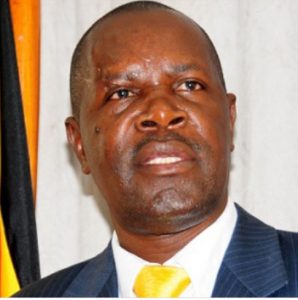
UGANDA’S CREATIVE RENAISSANCE, FROM SIDE HUSTLE TO NATIONAL GROWTH ENGINE
For decades, Uganda’s creative arts, i.e. music, film, fashion, visual arts, crafts, and related cultural industries were often dismissed as informal “hobbies” or secondary sources of income. Today, this sector is increasingly recognized as a vibrant economic engine capable of generating jobs, boosting national income, and shaping Uganda’s global identity. Our creative renaissance is more than a cultural expression but a cornerstone of economic growth and youth employment. More importantly, the government is finally beginning to treat it as such. We didn’t just arrive here and recognition of the pioneers that shaped the creative landscape and the growth we see today stands on the shoulders of those who laid the groundwork and never gave up. Legends like Elly Wamala, Fred Masagazi and others who started out in the early 60s established popular genres like kadongo kamu that set the stage for Ugandas music scene. We later see the birth of modern recorded music styles from stars like Jose Chamileon, Bebe Cool, Juliana Kanyomozi and others who have proved over time that music is a profitable pursuit defining modern Ugandan pop sound. Music producers like Steve Jean have made their contribution, mentoring generations of artists to treat music as a business. Today we see successful record labels like Swangz Avenue founded in 2008 by Benon Mugumya and Julius Kyazze energizing the local creative economy with brand partnerships and concerts. In film, figures like Lukyamuzi “Badi” Bashir have bridged music and cinema, using visual storytelling to diversify Uganda’s creative output. His film Bala Bala Sese brought Ugandan narratives to regional film festivals, elevating both visual art and local talent. This is to mention but a few. We all agree that music functions as entertainment, education and mobilization, often used to sustain momentum even during election campaign periods. Eddy Kenzo’s music tune “YOWERI” with his colleagues added an energetic cultural layer to Yoweri Museveni’s re-election campaign, resonating strongly with youthful and urban audiences. The tune fueled social-media clips that circulated far beyond formal campaign events, keeping the candidate’s presence in everyday public spaces, taxis, markets, and online platforms. Music indeed is a catalyst for social and political revolutions. giving voice to collective pain, hope, and resistance in ways speeches alone cannot. During the Civil Rights Movement in America, songs like “We Shall Overcome” and “A Change Is Gonna Come” unified protesters, sustained morale in the face of violence, and carried messages of dignity and equality into homes and churches across America. At the heart of the creatives transformation in Uganda is the realization that the industry does not merely entertain, they employ, export, and innovate. In recent years, data from the Uganda Bureau of Statistics suggests that the creative sector contributed roughly 3% of GDP, equating to around UGX 4.2 trillion, a figure comparable to long established sectors like mining. This contribution is no small feat. It highlights how music stars, film producers, fashion designers, painters, sculptors, digital creatives, and artisans are not fringe players but central to the economic story of Uganda. This shift in perception reflects a broader global trend as creative and cultural industries worldwide are major economic contributors. What makes Uganda’s creative industries so compelling as drivers of growth is their multiplying effect on the economy. Unlike sectors that require massive capital investments, creative industries often thrive with comparatively low entry costs and directly employ a number of young people, a demographic that faces high unemployment rates. Music concerts, film productions, fashion shows, craft markets, and visual art exhibitions create not only direct jobs for artists and technicians but also indirect opportunities for logistics, hospitality, event management, marketing, and digital services. Beyond jobs, creativity fosters entrepreneurship. An independent fashion label in Kampala selling handcrafted garments online, for example, may generate income directly and indirectly by partnering with textile suppliers, seamstresses, local influencers, and shipping services, creating an entire ecosystem around one creative idea. The industry is also a powerful tool for cultural diplomacy and brand Uganda. Ugandan music, film, and fashion have increasingly reached global audiences, contributing to cultural exports that elevate our profile. The outcome is economically meaningful as it attracts tourism, collaborations, and foreign investment. We can safely say that government has moved from just recognizing the sector to availing resources for growth. For the longest time, the growth of Uganda’s creative economy was driven by grassroots passion and individual innovation rather than structured support. Creatives have faced challenges including limited access to financing, weak intellectual property protection, and a lack of formal infrastructure to scale their businesses. But in the last few years, government has evolved from passive observer to active partner. A turning point came with the 2025–2026 National Budget, where the government earmarked UGX 66 billion specifically for the creative arts industry as part of a broader push into science, technology, innovation and culture. This substantial allocation signals growing recognition that creative sectors should sit alongside technology and industrialization as engines of growth. Beyond budget allocations, the government has introduced targeted funding initiatives aimed at addressing systemic barriers. Most notably, the Creative Uganda Revolving Fund backed by over UGX 28 billion is designed to unlock tailored financing for creative practitioners. This fund acknowledges a core challenge in creative industries which is the lack of access to affordable, flexible capital. Traditional financial institutions often exclude artists because they lack conventional collateral. The new fund responds by creating credit lines through creative domain SACCOs and by enabling intellectual property rights as acceptable security. This structured approach to financing is a meaningful step toward formalizing what has historically been informal, helping creatives grow their enterprises, transition into registered businesses, and participate fully in the economy. Additionally, the government’s involvement in events like the Uganda One Festival, a national platform bringing together stakeholders from music, film, fashion, visual arts, and digital media demonstrates intent to integrate policy, funding, and capacity building around a shared creative agenda. The festival, backed by substantial public financing, aimed to unify the sector to better commercialise work and educate creatives on monetisation and copyright enforcement. While government participation is growing, there are still a few challenges that need to be addressed including the dominance of informal market channels which constrain full economic realisation. Stronger intellectual property regimes, tax incentives for creative enterprises, investment in physical and digital infrastructure, and targeted training programs to deepen skills in areas like digital production and business management are all necessary next steps. At a time when global industries increasingly value stories, experiences, and cultural expression, Uganda is well positioned to leverage its creative assets for broad economic benefit. The government’s recent actions from significant budget allocations and structured financing mechanisms and sectoral dialogues reflect a growing understanding that culture and creativity are not luxuries but legitimate economic sectors. Indeed, the creative arts offer a pathway to inclusive growth, one that empowers youth, champions local identity, and connects Uganda to the world. The government is focused on economic diversification, youth employment, and international cultural influence, and creativity is at the centre of our national development strategy. It is not enough to recognise the value of creative expression, we must continue investing in it, structuring policy around its unique needs, and celebrating its economic impact. With the right blend of government support, private sector involvement, and creative entrepreneurship, it can become one of the most enduring and dynamic forces in Uganda’s economic narrative.
By Emma Were Belinda





